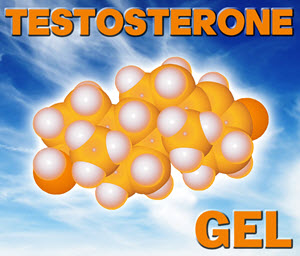Introduction
Chronic Kidney Disease (CKD) presents a complex challenge to the endocrine system, particularly in men, where it can lead to significant hormonal imbalances and subsequent health issues. This article delves into the adaptations of male endocrine function in the context of CKD and explores therapeutic considerations, aiming to provide valuable insights for healthcare professionals and patients alike.
Endocrine System Disruptions in CKD
CKD profoundly affects the endocrine system, disrupting the delicate balance of hormones that regulate various bodily functions. In men, this often manifests as alterations in the hypothalamic-pituitary-gonadal (HPG) axis, leading to hypogonadism. The kidneys play a crucial role in metabolizing and clearing hormones, and their impaired function in CKD results in elevated levels of certain hormones, such as parathyroid hormone (PTH), which can further exacerbate endocrine imbalances.
Impact on Testosterone Levels
One of the most significant endocrine changes in men with CKD is the decline in testosterone levels. This hypogonadism can lead to a range of symptoms, including decreased libido, erectile dysfunction, fatigue, and muscle wasting. The mechanisms behind this decline are multifaceted, involving increased levels of sex hormone-binding globulin (SHBG), which binds testosterone, reducing its bioavailability, and the direct impact of uremic toxins on testicular function.
Adaptations and Compensatory Mechanisms
In response to these hormonal disruptions, the male body attempts to adapt through various compensatory mechanisms. For instance, there may be an increase in luteinizing hormone (LH) levels as the body tries to stimulate testosterone production. However, these adaptations are often insufficient to fully counteract the effects of CKD, necessitating medical intervention.
Therapeutic Considerations
Managing endocrine dysfunction in men with CKD requires a multifaceted approach. Hormone replacement therapy (HRT) with testosterone can be considered to alleviate symptoms of hypogonadism. However, this must be approached cautiously, as testosterone can have adverse effects on kidney function and cardiovascular health. Regular monitoring of hormone levels and kidney function is essential to tailor treatment effectively.
Nutritional and Lifestyle Interventions
In addition to pharmacological treatments, nutritional and lifestyle interventions play a crucial role in managing endocrine function in CKD. A diet rich in essential nutrients, particularly those that support kidney health, such as omega-3 fatty acids and antioxidants, can help mitigate some of the hormonal imbalances. Regular physical activity, tailored to the patient's capacity, can also improve overall health and hormone regulation.
Emerging Therapies and Research
Recent research has focused on novel therapies to address endocrine dysfunction in CKD. For instance, selective androgen receptor modulators (SARMs) are being explored as a potential alternative to traditional testosterone therapy, offering the benefit of targeting specific tissues without the widespread systemic effects. Additionally, studies are investigating the role of vitamin D analogs in improving endocrine function, given their known impact on PTH levels and bone health.
Conclusion
The interplay between CKD and male endocrine function is a critical area of focus in endocrinology. Understanding the adaptations and compensatory mechanisms that occur in response to CKD can guide more effective therapeutic strategies. As research continues to evolve, the hope is to develop targeted interventions that can improve the quality of life for men living with this challenging condition. Healthcare providers must remain vigilant in monitoring and managing these endocrine changes to ensure optimal patient outcomes.
Contact Us Today For A Free Consultation

- Clomiphene Citrate Therapy in Men: Enhancing Endocrine Function in Secondary Hypogonadism [Last Updated On: February 20th, 2025] [Originally Added On: February 20th, 2025]
- Comprehensive Endocrine Evaluation Essential for Diagnosing Fatigue in American Men [Last Updated On: March 2nd, 2025] [Originally Added On: March 2nd, 2025]
- Exploring hCG Monotherapy and Exogenous Testosterone in Young Men with Hypogonadotropic Hypogonadism: A Focus on Testicular Function [Last Updated On: March 5th, 2025] [Originally Added On: March 5th, 2025]
- The Crucial Link Between Insulin Resistance and Male Hormonal Imbalances: Effective Management Strategies [Last Updated On: March 7th, 2025] [Originally Added On: March 7th, 2025]
- The Crucial Link: Vitamin D's Impact on Androgen Metabolism and Hormone Replacement Therapy [Last Updated On: March 8th, 2025] [Originally Added On: March 8th, 2025]
- The Critical Balance: Cortisol and Testosterone's Impact on Men's Health and Hormones [Last Updated On: March 9th, 2025] [Originally Added On: March 9th, 2025]
- Exploring Neurosteroid Modulation as a Pioneering Treatment for Stress-Induced Endocrine Disorders in American Men [Last Updated On: March 12th, 2025] [Originally Added On: March 12th, 2025]
- Exploring the Therapeutic Potential of Selective Androgen Receptor Modulators (SARMs) in Male Endocrine Disorders [Last Updated On: March 13th, 2025] [Originally Added On: March 13th, 2025]
- Exploring the Role of Oxytocin in Male Endocrinology: From Physiology to Therapeutic Potential [Last Updated On: March 15th, 2025] [Originally Added On: March 15th, 2025]
- Precision Medicine Revolutionizes HRT for Male Endocrine Disorders in American Males [Last Updated On: March 17th, 2025] [Originally Added On: March 17th, 2025]
- Endocrine Disrupting Chemicals: Impact on Male Health and Holistic Management Strategies [Last Updated On: March 18th, 2025] [Originally Added On: March 18th, 2025]
- Adipokines and Male Endocrine Health: Mechanisms, Impacts, and Therapeutic Prospects [Last Updated On: March 18th, 2025] [Originally Added On: March 18th, 2025]
- Chronobiology's Role in Male Hormone Secretion and Endocrinology for American Men [Last Updated On: March 18th, 2025] [Originally Added On: March 18th, 2025]
- Trace Elements' Impact on Hormone Metabolism in American Men: Zinc, Selenium, Magnesium [Last Updated On: March 19th, 2025] [Originally Added On: March 19th, 2025]
- Gut Microbiome's Role in Men's Steroid Hormone Metabolism and Health [Last Updated On: March 20th, 2025] [Originally Added On: March 20th, 2025]
- Thyroid-Testicular Axis: Impact on Male Health and Management Strategies [Last Updated On: March 20th, 2025] [Originally Added On: March 20th, 2025]
- Somatostatin Analogues: Versatile Applications in Male Endocrinology and Beyond [Last Updated On: March 21st, 2025] [Originally Added On: March 21st, 2025]
- Inflammaging and Male Hormonal Health: Strategies for Endocrine Optimization [Last Updated On: March 21st, 2025] [Originally Added On: March 21st, 2025]
- Mitochondrial Health and Male Hormones: Therapeutic Targets for Age-Related Decline [Last Updated On: March 21st, 2025] [Originally Added On: March 21st, 2025]
- Metabolomics Revolutionizing Male Endocrine Health Diagnostics and Treatment [Last Updated On: March 21st, 2025] [Originally Added On: March 21st, 2025]
- OSA in American Men: Exploring Endocrine Effects Beyond Testosterone [Last Updated On: March 22nd, 2025] [Originally Added On: March 22nd, 2025]
- Ghrelin Modulation Enhances Weight Management in Hypogonadal American Men on TRT [Last Updated On: March 22nd, 2025] [Originally Added On: March 22nd, 2025]
- Energy Balance and Reproductive Function in American Men: Neuroendocrine Integration and Clinical Implications [Last Updated On: March 23rd, 2025] [Originally Added On: March 23rd, 2025]
- NAFLD's Impact on Male Endocrine and Reproductive Health: A Comprehensive Overview [Last Updated On: March 23rd, 2025] [Originally Added On: March 23rd, 2025]
- Male Hormonal Health and Cognitive Function: The Impact of Hormone Replacement Therapy [Last Updated On: March 23rd, 2025] [Originally Added On: March 23rd, 2025]
- Pharmacogenomics Revolutionizes Hormone Therapy in Men: Tailoring Treatment to Genetic Profiles [Last Updated On: March 23rd, 2025] [Originally Added On: March 23rd, 2025]
- SHBG's Role in Male Hormonal Health: Regulation, Diagnosis, and Therapeutic Implications [Last Updated On: March 24th, 2025] [Originally Added On: March 24th, 2025]
- Luteinizing Hormone Dynamics: Diagnosis and Treatment in Male Endocrinology [Last Updated On: March 24th, 2025] [Originally Added On: March 24th, 2025]
- Managing Polycythemia in Men on Testosterone Therapy: Monitoring and Strategies [Last Updated On: March 24th, 2025] [Originally Added On: March 24th, 2025]
- Hormone Optimization and Lifestyle Strategies to Combat Sarcopenia in Aging Males [Last Updated On: March 24th, 2025] [Originally Added On: March 24th, 2025]
- Epigenetic Changes from HRT in American Men: Longitudinal Insights and Clinical Implications [Last Updated On: March 24th, 2025] [Originally Added On: March 24th, 2025]
- Leptin Resistance in American Men: Endocrine Effects and Management Strategies [Last Updated On: March 24th, 2025] [Originally Added On: March 24th, 2025]
- Endocrine Reserve Testing: Diagnosis and Management of Hormonal Imbalances in American Men [Last Updated On: March 25th, 2025] [Originally Added On: March 25th, 2025]
- Optimizing Bone Health: BMD Monitoring Protocols for Men on HRT in the USA [Last Updated On: March 25th, 2025] [Originally Added On: March 25th, 2025]
- Managing Male Climacteric Syndrome: Symptoms, Diagnosis, and Multidisciplinary Treatment Approaches [Last Updated On: March 25th, 2025] [Originally Added On: March 25th, 2025]
- Exercise and Endocrinology in Men: Hormonal Dynamics and HRT Implications [Last Updated On: March 25th, 2025] [Originally Added On: March 25th, 2025]
- Navigating Prostate Health During Testosterone Replacement Therapy: Risks and Monitoring Guidelines [Last Updated On: March 25th, 2025] [Originally Added On: March 25th, 2025]
- Pituitary Incidentalomas in Men: Evaluation, Management, and Long-term Monitoring [Last Updated On: March 25th, 2025] [Originally Added On: March 25th, 2025]
- Biomarkers in Male Endocrinology: Growth Factors and Cytokines' Clinical Applications [Last Updated On: March 25th, 2025] [Originally Added On: March 25th, 2025]
- Androgen Receptor Sensitivity: Enhancing Personalized Hormone Therapy in Men's Health [Last Updated On: March 25th, 2025] [Originally Added On: March 25th, 2025]
- Vasopressin's Therapeutic Roles in Male Endocrinology and Health [Last Updated On: March 25th, 2025] [Originally Added On: March 25th, 2025]
- Managing HPT Axis Recovery in American Men Post-Testosterone Therapy: Endocrinological Approaches [Last Updated On: March 26th, 2025] [Originally Added On: March 26th, 2025]
- Diurnal Hormone Patterns: Optimizing Endocrinology for American Males [Last Updated On: March 26th, 2025] [Originally Added On: March 26th, 2025]
- Post-Traumatic Hypopituitarism in American Men: Diagnosis, Treatment, and Management Strategies [Last Updated On: March 26th, 2025] [Originally Added On: March 26th, 2025]
- Endocrine Sequelae in Male TBI Patients: Long-Term Management and Follow-Up Strategies [Last Updated On: March 26th, 2025] [Originally Added On: March 26th, 2025]
- ECS's Role in Male Reproductive Health: Insights for American Men [Last Updated On: March 26th, 2025] [Originally Added On: March 26th, 2025]
- Subclinical Endocrinopathies in Men: Diagnosis, Thresholds, and Treatment Strategies [Last Updated On: March 26th, 2025] [Originally Added On: March 26th, 2025]
- Inhibin B: Key Biomarker for Assessing Male Fertility and Endocrine Health [Last Updated On: March 27th, 2025] [Originally Added On: March 27th, 2025]
- Aging Men's Endocrine Changes: Impacts on Fertility and Offspring Health [Last Updated On: March 27th, 2025] [Originally Added On: March 27th, 2025]
- Opioid-Induced Endocrinopathy in Men: Mechanisms, Symptoms, and Management Strategies [Last Updated On: March 27th, 2025] [Originally Added On: March 27th, 2025]
- Multimarker Approach to Cardiometabolic Risk in Men on Hormone Replacement Therapy [Last Updated On: March 27th, 2025] [Originally Added On: March 27th, 2025]
- Endocrine Frailty in Aging Men: Hormonal Decline and Multimodal Intervention Strategies [Last Updated On: March 27th, 2025] [Originally Added On: March 27th, 2025]
- Male Sex Hormones and Autoimmune Disease Management in American Men: Endocrinology Insights [Last Updated On: March 27th, 2025] [Originally Added On: March 27th, 2025]
- HRT and Telomere Length: Implications for Aging and Longevity in American Men [Last Updated On: March 27th, 2025] [Originally Added On: March 27th, 2025]
- INSL3: A Stable Biomarker for Leydig Cell Function in Male Reproductive Health [Last Updated On: March 27th, 2025] [Originally Added On: March 27th, 2025]
- Neuropeptide Y: Key Regulator in Male Endocrine and Metabolic Health [Last Updated On: March 28th, 2025] [Originally Added On: March 28th, 2025]
- Bioavailable Hormones: Key to Effective Male Endocrinology Treatment in American Men [Last Updated On: March 28th, 2025] [Originally Added On: March 28th, 2025]
- Managing Endocrine Disruption in Men Post-Chemotherapy: Strategies and Support [Last Updated On: March 29th, 2025] [Originally Added On: March 29th, 2025]
- Genetic Insights into Male Hypogonadism: Diagnosis, Treatment, and Counseling [Last Updated On: March 29th, 2025] [Originally Added On: March 29th, 2025]
- AMH's Emerging Role in Adult Male Endocrinology and Reproductive Health [Last Updated On: March 30th, 2025] [Originally Added On: March 30th, 2025]
- Hyperparathyroidism's Impact on Male Reproductive Health: Diagnosis and Management Strategies [Last Updated On: April 2nd, 2025] [Originally Added On: April 2nd, 2025]
- Radiation-Induced Hypopituitarism in Men: Diagnosis, Hormone Deficiency Patterns, and Management Strategies [Last Updated On: April 3rd, 2025] [Originally Added On: April 3rd, 2025]
- Hemochromatosis in American Men: Endocrine Effects, Screening, and Management Strategies [Last Updated On: April 3rd, 2025] [Originally Added On: April 3rd, 2025]
- Managing Male Sexual Desire Disorders: Endocrine Focus and Treatment Options for American Men [Last Updated On: April 6th, 2025] [Originally Added On: April 6th, 2025]
- Osteoporosis in Men: Endocrine Evaluation, Hormone Therapy, and Dietary Management [Last Updated On: April 7th, 2025] [Originally Added On: April 7th, 2025]
- Adrenal Incidentalomas in Men: Evaluation, Management, and Long-term Follow-up Strategies [Last Updated On: April 7th, 2025] [Originally Added On: April 7th, 2025]
- Cushing's Syndrome in Men: Clinical Features, Diagnosis, and Management Strategies [Last Updated On: April 8th, 2025] [Originally Added On: April 8th, 2025]
- Hormonal Imbalances and Their Impact on Male Stress Urinary Incontinence [Last Updated On: April 8th, 2025] [Originally Added On: April 8th, 2025]
- Hormone Replacement Therapy: Enhancing Male Fertility Through Endocrinology [Last Updated On: April 9th, 2025] [Originally Added On: April 9th, 2025]
- Enhancing Endocrine Resilience in American Men: Strategies and Biological Insights [Last Updated On: April 9th, 2025] [Originally Added On: April 9th, 2025]
- Growth Hormone and IGF-1: Enhancing Male Athletic Performance and Health [Last Updated On: April 10th, 2025] [Originally Added On: April 10th, 2025]
- Endocrine Management of Hormone Therapy for Transgender Men: Protocols and Monitoring [Last Updated On: April 12th, 2025] [Originally Added On: April 12th, 2025]
- Androgen Action: Mechanisms, Prostate Health, and Targeted Therapies for American Men [Last Updated On: April 12th, 2025] [Originally Added On: April 12th, 2025]
- Advancements in Male Hormonal Contraception: Impact and Future Prospects [Last Updated On: April 13th, 2025] [Originally Added On: April 13th, 2025]
- AI-Driven Precision Endocrinology: Personalizing Hormone Therapy for Men [Last Updated On: April 14th, 2025] [Originally Added On: April 14th, 2025]
- Enhancing Male Endocrinology Care with Patient-Reported Outcome Measures in American Men [Last Updated On: April 16th, 2025] [Originally Added On: April 16th, 2025]
- Quality Indicators in Male Endocrine Care: Development, Implementation, and Impact on American Men's Health [Last Updated On: April 16th, 2025] [Originally Added On: April 16th, 2025]
- Integrative Endocrinology: Holistic Hormone Therapy for American Men's Health [Last Updated On: April 16th, 2025] [Originally Added On: April 16th, 2025]
- Wearable Tech Revolutionizes Hormone Monitoring and HRT for American Men [Last Updated On: April 17th, 2025] [Originally Added On: April 17th, 2025]
- Cost-Effectiveness of Hormone Replacement Therapy Strategies for American Men [Last Updated On: April 17th, 2025] [Originally Added On: April 17th, 2025]
Word Count: 530





















